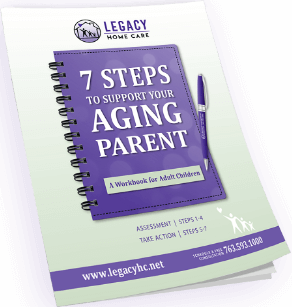Understanding the Difference: 24-Hour Care Vs. Live-in Care in Home Health Care
When it comes to providing care for elderly people with high needs or people with chronic conditions, a common question arises: should we opt for 24-hour care or live-in care? Both care options are designed to accommodate the needs of individuals who require constant support, but they differ significantly in their execution. Understanding the specifics of both methods can guide families to make an informed decision about what would best serve their loved ones’ needs.
24-Hour Care
24-hour care is exactly what it sounds like: around-the-clock, continuous care provided in shifts by healthcare professionals. This model typically involves multiple caregivers working in 8-12 hour shifts to ensure seamless care throughout the day and night.
The primary advantage of 24-hour care is the immediate availability of professional help at any time of day or night. This type of care is often best suited for those with severe medical conditions or cognitive impairments that necessitate frequent attention, whether for administering medication, assistance with personal hygiene, mobility support, or managing behavioral issues.
24-hour care also provides regular supervision to prevent accidents or emergencies. For instance, in cases where individuals are prone to wandering due to dementia or Alzheimer’s, or there’s a risk of falls, 24-hour care can provide necessary surveillance.
However, the main downside of 24-hour care is cost. Given that this level of service requires paid professional caregivers working in shifts to provide continuous care, it can be more expensive than other home health care options.
Live-In Care
Live-in care, on the other hand, involves one caregiver who lives in the home of the person needing care. The caregiver is entitled to 8 hours of sleep and breaks during a 24-hour day. This type of care allows the patient to receive care and companionship from a single caregiver, which can foster a stronger, more personal bond.
Live-in care offers a great balance between professional help and companionship. It can be an excellent choice for individuals who need regular assistance but don’t require intensive or immediate medical care throughout the day.
Moreover, the caregiver’s presence can offer an increased sense of security and reduce feelings of loneliness and isolation, a factor crucial for mental well-being.
One of the potential downsides to live-in care is the lack of continuous awake supervision, particularly during the caregiver’s rest period. However, most caregivers agree to be ‘on-call’ during their sleep time for emergencies.
Cost-wise, live-in care is often more affordable than 24-hour care since it involves paying for only one caregiver who provides their services within a single day.
Conclusion
Choosing between 24-hour care and live-in care often boils down to the specific needs of the person receiving care and the family’s financial resources.
If round-the-clock awake supervision is needed due to severe health or cognitive conditions, then 24-hour care might be the better option. Conversely, if the focus is more on companionship, assistance with daily tasks, and general supervision, then live-in care could be a more suitable and cost-effective choice.
Whichever route you decide, remember that both 24-hour and live-in care provide invaluable support for loved ones, offering peace of mind and ensuring their safety, comfort, and well-being. It’s about choosing the option that best fits your unique circumstance and helps your loved ones continue to live life to the fullest.
Our team of experienced liaisons can help you and your family identify the best choice for your loved one. Schedule a consultation today and take the next step in helping your loved one get the care they need.

